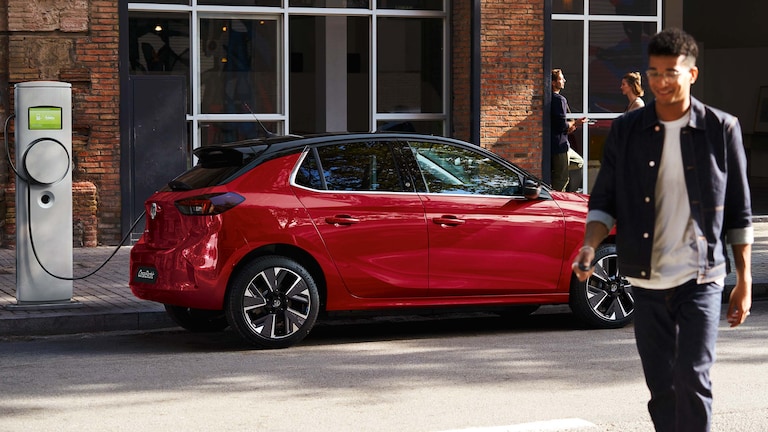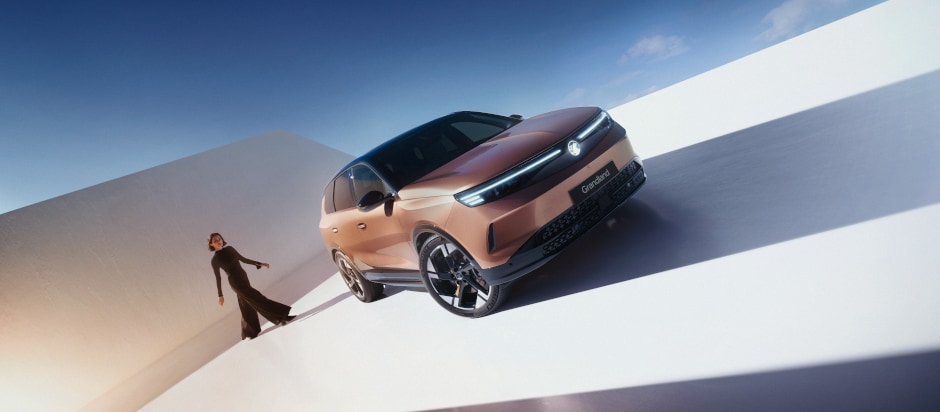
Should i buy an electric car?
September 2022
With more EVs on UK roads than ever before, many drivers are now considering making the switch to an electric car. However, swapping to electric-only can be daunting when you’re used to driving a petrol or diesel vehicle.
We’ve created this guide to help you decide whether an electric car is for you, covering all of the pros and cons of owning an electric vehicle.
Pros & Cons of Electric Cars
As with anything, there are pros and cons to owning and driving an electric car. Below, we outline both and provide options for countering any cons.
Benefits of Electric Cars
The surge in the popularity of electric cars is a sign of the many benefits they offer, including:
1. Electric cars are cheaper in the long term.
Compared to fuelling a petrol or diesel car, electric cars are significantly cheaper to run. According to Pod Point, it costs between 1p and 10p per mile to charge an electric car, equating to some serious savings on fuel costs. Find out more about how much it costs to charge an electric car in our guide.
Because electric cars are greener and generate lower emissions, it means you could also save money on road tax and avoid paying congestion charges. Not only that but the fewer moving parts in an EV means maintenance costs are reduced, as parts are less likely to fail due to wear and tear.
While the initial purchase price of an EV may be higher, long-term savings can make owning an electric car more affordable. Read more in our guide to the cost of electric cars.
2. EVs are better for the environment.
Electric cars are greener than petrol or diesel cars. Traditional combustion engines run on fossil fuels, whereas an EV stores an electric charge in a lithium-ion battery. As electricity is a renewable energy source, this is a greener alternative to traditionally fuelled vehicles.
Unlike cars with a combustion engine, EVs produce zero tailpipe emissions, which means fewer greenhouse gases are released into the atmosphere which can contribute to air pollution and global warming.
Another benefit of electric cars is that they’re more efficient with the energy they do use. It’s estimated that 70% of the power produced by an EV battery makes it to the wheels of the car, compared to just 20% in a traditional combustion engine.
3. Electric cars can be more convenient than traditionally fuelled vehicles.
If you’ve parked in the city centre or at a multistorey car park recently, you're likely to have driven past designated electric car parking spaces. These spaces are complete with charging points, so you can top up your car’s charge as you go about your day. In some cases, such as at supermarkets, free charging is available.
Likewise, if your car is running low on petrol or diesel, you may need to go out of your way to fill up, maybe even setting off for your journey earlier. EVs are more convenient in that you can charge them from home. Charge them overnight and wake to a fully charged car ready to go.
4. Electric cars hold their own in the performance stakes.
As with any new technology, EVs have been refined over time. While they once had a reputation for being slower and more sluggish than their petrol or diesel counterparts, this is now a thing of the past.
Today, electric vehicles offer impressive torque and acceleration, and in some cases can outperform cars with a traditional combustion engine. This is because the automatic transmission found in EVs delivers power directly to the wheels, while fewer moving parts support efficient energy transfer too.
5. Electric cars are quieter.
If you’ve ever taken an EV for a test drive, you’ll have noticed how quiet an electric car is compared to petrol or diesel models. This is because EVs don’t require the same combustion process that traditional models do, which is where much of the ‘roar’ of an engine is generated.
Because they drive so silently, most EVs have been designed to emit noise when travelling at slow speeds to warn pedestrians of your presence.
6. Electric cars are designed for the future.
We have already seen a staggering electric vehicle uptake in recent years and that’s set to continue as the government’s 2030 ban on the sale of petrol and diesel vehicles creeps closer.
Owning an electric vehicle in 2022 is very different from what it was a few years ago. The UK’s infrastructure is much more able to support a growing number of EVs now, with more available charging points than ever before. That’s only set to rise in the coming years too, as we continue to adapt to fully electric driving.
Disadvantages of Electric Cars
With every advantage comes a disadvantage. Here are some of the most common drawbacks of electric cars and how you can combat them:
1. Producing electric cars creates more carbon emissions than traditional vehicles.
While this is true, the additional emissions created are often offset by the lower emissions produced when driving. As the popularity of electric cars grows, processes will become more refined, which should see production emissions reduce over time.
2. Electric cars are more expensive to buy.
Electric cars do have a higher initial purchase price than traditional vehicles, but they can save you money in the long run. There are also various incentives designed to reduce the costs of owning an electric car, such as discounts on a home charger.
3. Electric cars can only drive so far.
Every electric car has a range, which is how far it can travel on a single charge.
You needn’t let electric car range limit how far you travel, though. The UK’s EV charging network has grown rapidly in recent years, so there are plenty of charging points available en route. Rapid charging points can give your car up to 200 extra miles of charge in just 20-30 minutes, for example.
Top-up charging is one of the most effective ways of avoiding long charging times as you drive, as you’ll maintain a level of charge rather than start charging from scratch at 0%.
Should I buy an electric car now or wait?
A few years ago, drivers were hesitant to make the switch to an EV. For many, it was simply too early; the technology was relatively new and the availability of charging points was more limited than what it is today.
As you can tell by the recent surge in electric car ownership, these worries aren’t a concern for many drivers these days. The performance of electric cars is well proven and charging points are springing up across the country.
Factors outside of motoring could influence the decision to switch too. Rising fuel costs could make driving electric a more appealing option for some while increasing awareness of climate change has nudged some drivers into switching to an EV.
Electric cars are the future. Whether you make the switch now or later, we’ll all be driving electric soon enough, so why not make your next car an EV?
One of the best ways of knowing whether an electric car is right for you right now is to test drive one. Book a test drive online and experience driving electric for yourself.


